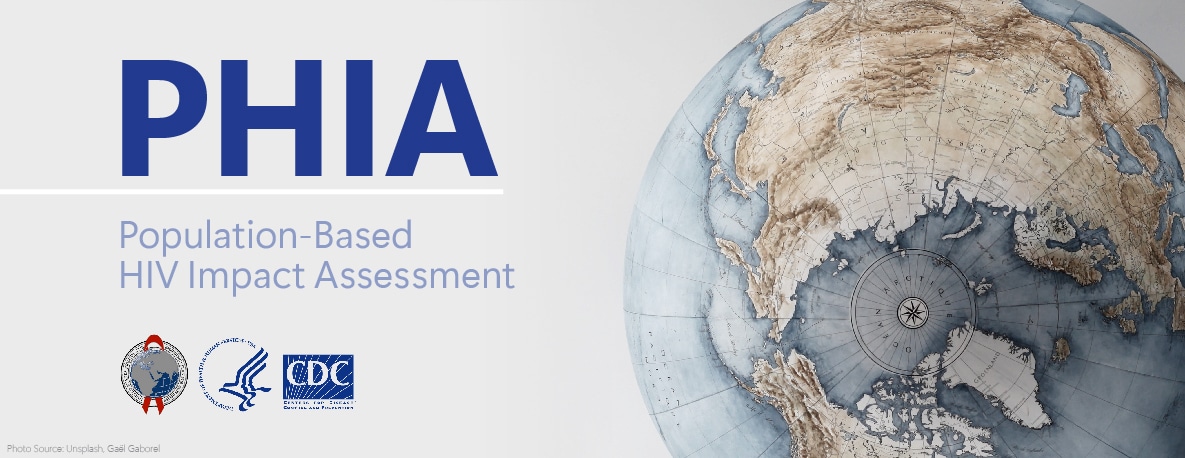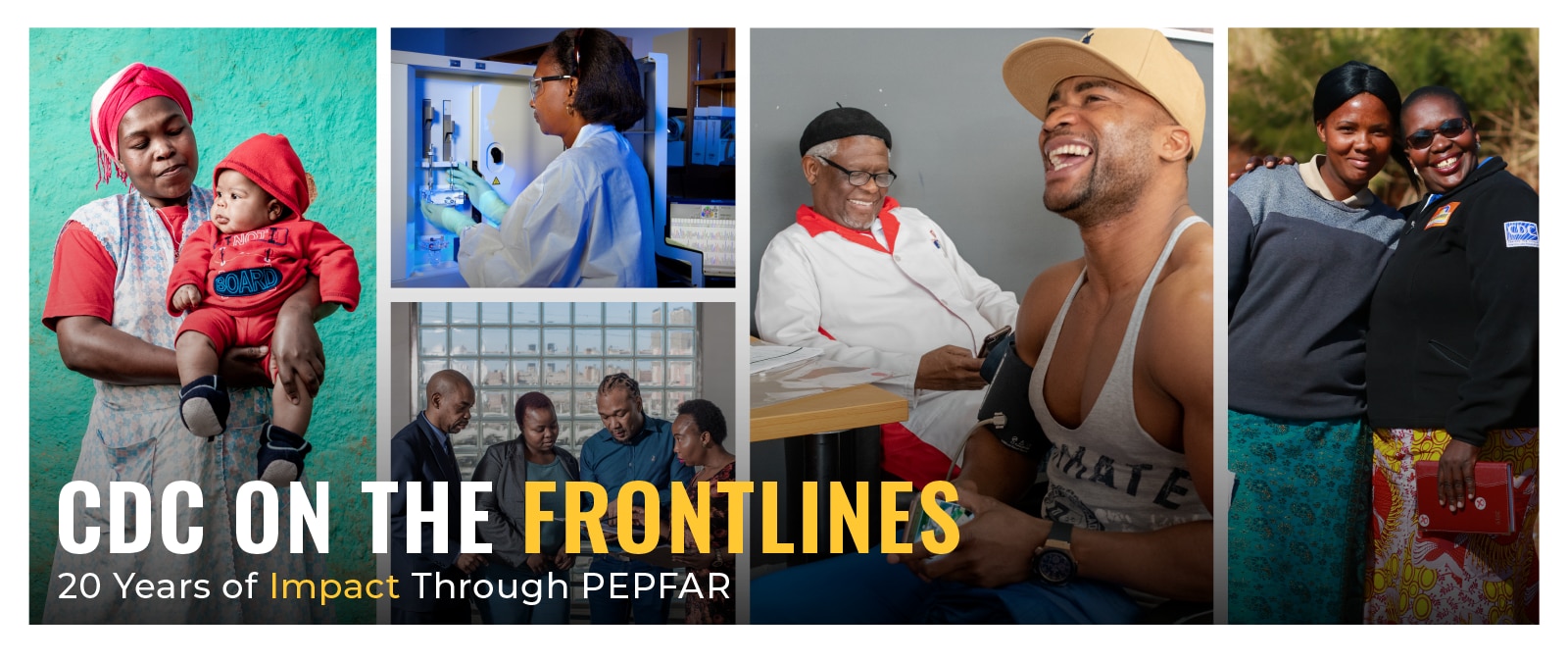Tanzania Country Profile

Tanzania Country Profile
Discover more about CDC’s work in Tanzania by viewing our detailed country profile
Country Overview
CDC works with Tanzania’s Ministry of Health, Community Development, Gender, Elderly, and Children on the mainland and the Ministry of Health in Zanzibar to support HIV testing, prevention, and treatment services and strengthen the nation’s health system. CDC collaborates with the ministries to rapidly initiate antiretroviral treatment for all individuals who receive a positive HIV test result; provide technical assistance to increase uptake of voluntary medical male circumcision services; support quality assurance efforts for HIV rapid testing, early infant HIV diagnosis, and viral load testing; strengthen health worker training, deployment, and retention; and enhance health information systems.
Per Capita GNI
$1,200
(2022)
Population (million)
65.49
(2022)
Under 5 Mortality
47.1/1,000 Live Births
(2021)
Life Expectancy
66.2 Years
(2021)
Estimated HIV Prevalence
4.3%
(Ages 15-49): (2022)
Estimated AIDS Deaths
19,000
(Age≥15) (2022)
TB Treatment Success Rate
96%
(2020)
Estimated TB Incidence
208/100,000
(2021)
Estimated Orphans Due to AIDS
890,000
(2022)
TB patients with known HIV-status who are HIV-positive
18%
(2021)
Reported Number Receiving Antiretroviral Therapy (ART)
1,559,786
(Age≥15) (2022)
Strategic Focus
The Centers for Disease Control and Prevention (CDC) Tanzania works with the Ministry of Health, Community Development, Gender, Elderly, and Children (MOHCDGEC) on the mainland and the Ministry of Health on Zanzibar to support HIV testing, prevention, treatment services, and to strengthen the health systems.
Strengthening Public Health Systems: CDC supports HIV rapid testing quality assurance, early infant HIV diagnosis, and viral load testing; health worker training, deployment and retention; and strengthening health information systems to inform data for decision-making.
Scale-up of HIV Treatment and Voluntary Medical Male Circumcision (VMMC): CDC collaborates with MOHCDGEC to implement the World Health Organization’s (WHO) Test and Start policy, to immediately start HIV positive individuals on Antiretroviral treatment (ART). CDC provides technical assistance to increase Voluntary Medical Male Circumcision (VMMC) in Tanzania as part of the HIV risk-reduction program.
Reaching Key Populations (KP) and Prevention of Mother-to-Child Transmission Transition (PMTCT): CDC supports formative research, testing, prevention, and linkage to treatment services for KPs, including medically assisted treatment for people who inject drugs. CDC provides technical assistance for improvement of mother-infant pair cohort monitoring as well as skill building of healthcare workers to use data on testing, linkage, enrollment, and retention in ART for pregnant and lactating women living with HIV and their infants.
Key Activities and Accomplishments
Bukoba Combination Prevention Evaluation (BCPE) Study: This study has successfully demonstrated higher uptake of HIV testing at health facilities and facilitated linkage to HIV treatment through enhanced provider initiated testing and counseling (PITC) and linkage case management (LCM) program respectively. The study started in November 2013, with a baseline evaluation, followed by interventions from October 2014 to March 2017. Compared to the period before BCPE models intervention, over five folds more people living with HIV were identified during the 2.5 years of BCPE PITC model implementation. Linked 94% of the diagnosed clients who were out of HIV treatment and initiated on ART through the LCM program. The last phase of the study, end line evaluation ended in March 2018
Laboratory Accreditation and Certification: Eight laboratories have been accredited to international standards, and 76 labs are enrolled in WHO’s Strengthening Laboratory Management Toward Accreditation (SLMTA) program. The MOHCDGEC, in collaboration with CDC, launched the National Framework for Point of Care Testing (POCT) Certification in November 2017.
Project Extension for Community Healthcare Outcomes (ECHO): Since its launch in November 2016, Laboratory Project ECHO, a distance learning and mentorship model to build healthcare worker capacity, has extensively trained and mentored HIV testers in Tanzania. To date, a total of 40 training sessions have been held with a total of 315 participants. Evaluation tests conducted after each distance learning session have shown a measurable gain in knowledge by the participants.
Methadone Assisted Therapy: CDC supports integrated HIV services in Methadone Assisted Therapy (MAT) clinics for people who inject drugs (PWID). Services provided include, MAT, HIV Testing and counselling, antiretroviral therapy, Hepatitis B, STI and Tuberculosis (TB) screening. There are three clinics in Dar es Salaam, one in Mwanza, and one in Zanzibar. By the end of fiscal year 2018, 4,909 are expected to have completed six months of MAT services. In fiscal year 2019, CDC is planning to scale up to two additional clinics in Pwani and Tanga, respectively.
Workforce Development: In 2008, CDC helped establish the Field Epidemiology & Laboratory Training Program (FELTP) in Tanzania. In 2016, Tanzania’s FELTP emerged as one of the few countries worldwide to have implemented the full pyramid FELTP approach with three training programs for Frontline, Intermediate, and Advanced recruits. Overall, FELTP Tanzania has graduated 100 residents from the Advanced Program, 117 from the Frontline Program, and 22 from the Intermediate Program.

Tracking PEPFAR Impact Toward Global Targets
The U.S. Centers for Disease Control and Prevention (CDC) works with partners including host countries, local implementing partners, faith-based organizations, and other community-based organizations to measure progress towards HIV epidemic control in countries supported by the U.S. President’s Emergency Plan for AIDS Relief (PEPFAR).

A Health Providers’ Commitment to Ending Tuberculosis in Tanzania
When Mr. Ramadhani Bernadina developed a fever and cough that lasted for months, he began purchasing over-the-counter antibiotics in hopes of ridding himself of the illness. To his dismay, his health continued to deteriorate, forcing him to move in with his sister and extended family.

CDC On the Frontlines
Over the past 20 years, the U.S. President’s Emergency Plan for AIDS Relief (PEPFAR) has saved millions of lives as a leader in the global response to two of the world’s deadliest infectious diseases – HIV and TB. As a key implementing agency of the U.S. President’s Emergency Plan for AIDS Relief (PEPFAR), CDC is at the forefront of these global efforts to treat and prevent these diseases.